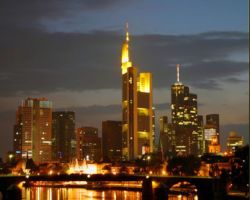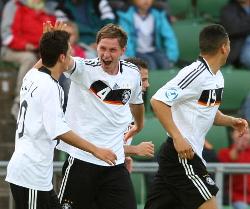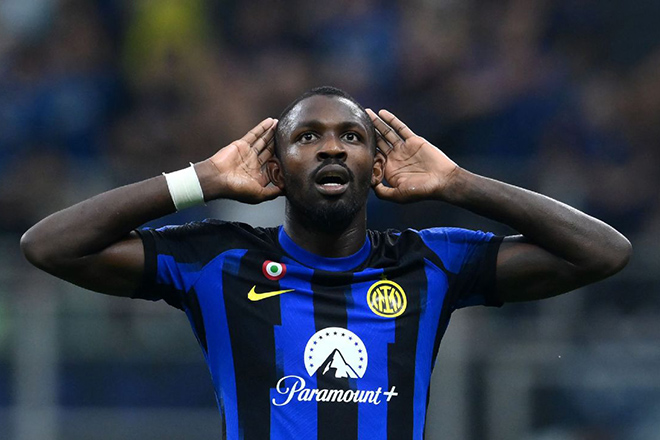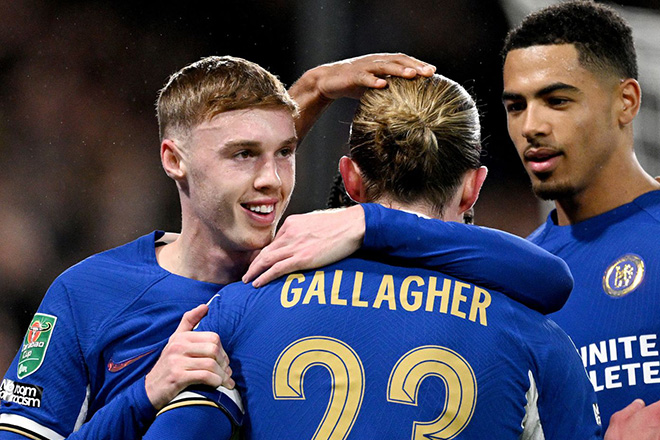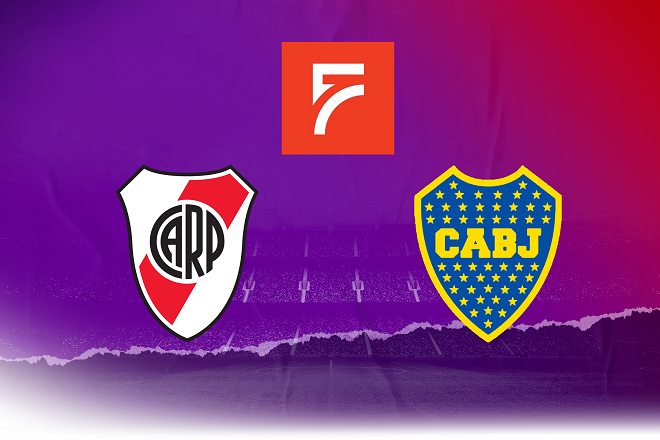Germany - The country, the football
The Federal Republic of Germany, popularly known as just Germany, is a Central European country bordered by the North Sea, Denmark, the Baltic Sea, Poland, the Czech Republic, Austria, Switzerland, France, Luxembourg, the Netherlands, and Belgium.
With its people estimated to be around the number of 82,000,000, Germany occupies the 14th place in the World Ranking for Populations, and its territory is stretched to a total area of about 357,000 km².
The German national soccer team, referred to as Die Mannschaft by non German-speaking media (despite its real name being “The DFB-Eleven”), are giants in the world of football. Over the past two decades, they somehow lost the luck that led them to three World Cup trophies.
The Germans were longing for a FIFA World Cup reward when their country hosted the tournament’s 2006 edition, but regardless of the massive home support they had and they huge history behind them, the DFB-Eleven only managed to finish with the bronze medal, following a 3-1 win over Portugal in the competition’s third place semifinal encounter. Now four years after, Germany is still craving for global conquest; and ultimately, such a strong desire could drive them to the top spot in South Africa 2010.
Germany – The road to the 2010 FIFA World Cup finals
On account of their high position in the FIFA World Rankings in November 2007, Germany was seeded in Pot A ahead of the draw for the First Round of the 2010 FIFA World Cup qualifiers (UEFA zone). Also in Pot A were Italy, Spain, the Czech Republic, France, Portugal, the Netherlands, Croatia, and Greece. Consequently, these were top teams the Germans did not have to expect in their table.
The draw for the First Round happened in November 2007, in the South African city of Durban. It was during this event that Russia, Finland, Wales, Azerbaijan, and Liechtenstein, along with Germany were put into Group 4 of the 2010 FIFA World Cup qualifiers.
The first match of the Germans was set to take place on September 6, 2008 at the Rheinpark Stadium in Liechtenstein. Unsurprisingly, the DFB-Eleven demolished the home side 6-0 to steal all three points in their first attempt, in addition to an outstanding goal difference.
Germany then showed much more struggle in their second game against Finland, being held to a 3-3 draw away to the Olympiastadion. Guus Hiddink’s Russia failed in their mission of defeating the Germans on match-day 3, though. They went down by two goals to one away from home.
Five goals and a clean sheet in their next two challenges against Wales and Liechtenstein ensured the DFB-Eleven with an unbeaten run in the qualifiers, before two consecutive 2-0 victories against the Welsh and Azerbaijan converted the Germans into an invincible side.
Later on, 4-0 and 1-0 were the score lines in favor of the former World Cup hosts, as the European giants earned six more points to cement their place at the top of their table. Germany however missed their chances of getting the perfect end to their qualifiers, been incapable of beating Finland after a 1-1 home draw.
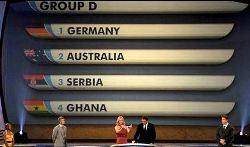 Germany – The FIFA World Cup 2010 group stage
Germany – The FIFA World Cup 2010 group stage
The FIFA World Rankings in October 2009 had a very strong impact on the 2010 FIFA World Cup seeding. Of course, as Germany were eligible for a place in the top 10, they were seeded in Pot 1 ahead of the final draw which occurred on December 4, 2009, in the South African city of Cape Town.
Having benefited from their fortune as top seeds, the DFB-Eleven were assured of facing teams with a lower ranking than theirs in the tournament’s first round. Hence, they knew their qualification into the knockout stages would be easier.
After the event at the Cape Town International Convention Centre, Germany landed in Group D, followed by Australia, Serbia, and Ghana. Considering their difficult tests at the World Cup, the Germans could be content with the enticing task ahead of them, but no one could deny the fact that they would first need to look forward to 270 minutes of thrilling football.
Match-day 1: Germany vs Australia
A home game against Australia will be Germany’s first fixture at the 2010 FIFA World Cup in South Africa, as the game takes place at the Moses Mabhida Stadium in Durban.
Australia’s last appearance in the World Cup was back in 2006, when they progressed into the tournament’s last 16 stage, only for Italy to defeat them by a goal to nil, following a highly debatable penalty given to the competition’s title holders.
On this occasion, the Australians are certainly not prepared to suffer such a bitter moment again, and as this conflict-ridden incident happened in Germany, the Oceanic giants are likely to throw a part of their anger on their German opponents on June 13, 2010 (at 14:00 GMT).
Match-day 2: Germany vs Serbia
Another home encounter for Germany on the 18th of June 2010 against Serbia, at the Nelson Mandela Bay stadium in Port Elizabeth, is scheduled to kick-off at 13:30 South African local time, as their next defy.
The Serbians might not be as highly respected as the Germans; yet, they’ll certainly have no problem in their attempt to emerge among the 2010 FIFA World Cup’s surprise packages. One might find it very hard to predict the final result of this particular match.
Match-day 3: Ghana vs Germany
Ghana will then entertain Germany at the Soccer City in Johannesburg, on June 23, at 18:00 GMT. Ghana are said to be the most terrifying team in Africa, since their shocking achievement at the 2006 World Cup. Ghana advanced into the last 16 stage of the tournament, but unfortunately failed to reach the quarterfinals after a contentious 3-0 loss to Brazil.
This time around, the Black Stars’ aim is to go further in the competition; apparently, they can only get to their target if ever they succeed in winning as many games as possible, and this include their clash against favorites Germany.
Being aware of the tough time the Brazilians or even the Italians had against the African side in 2006, it would be advisable for the Germans to play without any heavy pressure or complacency. Doing so could miserably cost them more than they would possess at that point in time. Above all, they will be without their influential captain, Michael Ballack, who was ruled out from the tournament after sustaining an injury made by Ghana's Kevin Prince Boateng in final of the 2009/2010 FA Cup.
Germany – Quick Analysis: Expectations from the country and its to.jpg) p stars
p stars
The DFB-Eleven will be travelling to South Africa with an army lacking its leader, Michael Ballack, among other top players. As a result, the likes of Lukas Podolski, Bastian Schweinsteiger, and other young players are expected to carry the people's expectations on their shoulders, as the former World Cup hosts attempt to grab the world’s most wanted football trophy.
Lukas Podolski and Miroslav Klose:
The two German strikers have been playing together for quite some time now in both club and country. Both Bayern Munich forwards played for the DFB-Eleven at the 2006 World Cup, and despite their lack of connection in front, each player was somehow able to make an impact in the national team.
Seeing them lined-up in attack once again for the Germans in South Africa will be interesting, as it will be another chance for them to prove their worth in the German national football team. Surely, their supporters will want to see the best out of them, in view of the tournament’s uniqueness.
Bastian Schweinsteiger:
The 25-year-old German and Bayern Munich midfielder is also anticipated to be an integral part of the German team during the 2010 FIFA World Cup in South Africa. The player was Germany’s most remarkable footballer at some point in his side’s third place semifinal match against Portugal in 2006, getting his name on the scoring sheet with marvelous goals.
Schweinsteiger also played beautifully throughout the whole of the EURO 2008 competition, despite not being able to shine in his team’s defeat to Spain in the final.
During the 2010 FIFA World Cup, Bastian should be at his peak, bearing in mind that partnering with country mates Podolski and Klose will not be a difficulty, as all three footballers train together regularly in Bayern.
Germany – Current 2010 FIFA World Cup squad
Goalkeepers:
Tim Wiese; Manuel Neuer; Hans-Joerg Butt
Defenders:
Serdar Tasci; Per Mertesacker; Philipp Lahm; Marcell Jansen; Jerome Boateng; Arne Friedrich; Holger Badstuber; Dennis Aogo
Midfielders:
Piotr Trochowski; Bastian Schweinsteiger; Mesut Oezil; Marko Marin; Toni Kroos; Sami Khedira
Forwards:
Lukas Podolski; Thomas Mueller; Miroslav Klose; Stefan Mario Gomez; Cacau
*German keeper Robert Enke was expected to obtain a place in the German national team, but his sudden death (supposed suicide) in November 2009 forced a few changes in the German coach’s selection. It will then be impossible for the DFB-Eleven to benefit from Robert Enke’s services in South Africa.
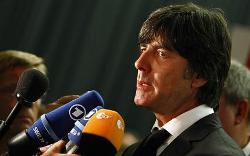 Germany – Relevant Quote
Germany – Relevant Quote
Joachim Low: “It’s going to be hard, but we are up to the task”
German Coach Joachim Low expressed his thoughts concerning the draws of his group (Group D), analyzing each opponent as a dangerous challenger. Nevertheless, Low is confident that Germany will make it through the World Cup’s next rounds, emphasizing his side’ potency. Below is the quote from Joachim Low on this issue:
“I wouldn't say that we were too lucky with the draw of our group (Group D). It is not going to be an easy run, but it is certainly not beyond us (Germany).
“It will be very important for our confidence to succeed in our opening match against Australia; and I believe it is going to be a tricky one.
“I shaded Serbia coach Radomir Antic for some time when he was at FC Barcelona, years ago. Serbia were great in qualifying (for the 2010 FIFA World Cup), and they have some extremely good players. In my opinion, Ghana are going to be a very difficult country to play against, due to their physical strength; and also because they played very well in the 2006 World Cup.
"I personally do not think we need to fear any of the countries we are up against, because we possess a very strong squad ourselves.”
Germany – 2010 FIFA World Cup record
In all, Germany have qualified seventeen times for the FIFA World Cup finals, and in all their history, they have been able to hold the World Cup trophy on three occasions. Below is the record of the Germans in the World Cup competition:
2010: Qualified as participants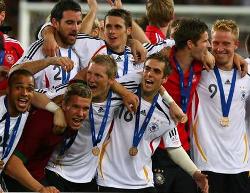
2006, 1970, 1934: Third Place
2002, 1986, 1982, 1966: Runners-up
1998, 1994, 1962: Quarterfinals
1990, 1974, 1954: Champions
1978: Second Round
1958: Fourth Place
1938: Round 1
Stick with LiveSoccerTV.com for an excellent coverage of the 2010 FIFA World Cup in South Africa!

